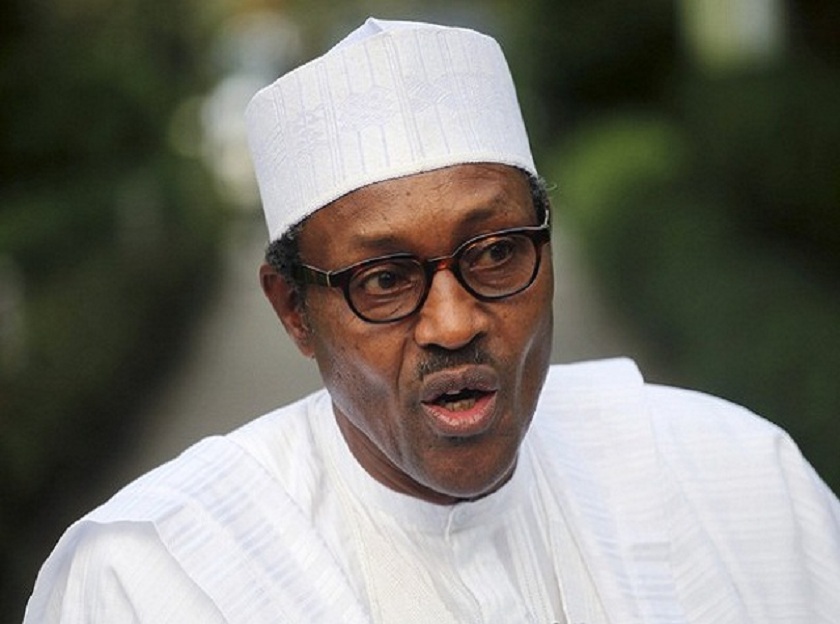By Wole ABIJOKO
There are concerns that more Nigeria manufacturers will close shop before the end of October this year, not because of COVID-19, but rather the refusal of most senior government officials to respect a subsisting presidential directive to patronize quality made in Nigeria products.
Executive Order Number 3 of 2017 signed by Vice President, Yemi Osinbajo on May 18, 2017, among other things, directs that all Federal Government Ministries, Departments and Agencies (MDAs) must grant preference to local manufacturers of goods and services in their procurement of such items.
Further, any document issued by any MDA for the solicitation of offers, bids, proposals or quotations for the supply of goods and services must expressly indicate the preference to be granted domestic manufacturers or service providers.
Equally, made-in-Nigeria must be given preference and at least 40 per cent of the procurement of certain listed items in all MDAs must be locally manufactured goods or from local service providers. They include uniforms and footwear, food and beverages, furniture and fittings, stationery, motor vehicles, pharmaceuticals, construction materials and ICT goods.
However, it appears the Bureau of Public Procurement and the EFFC are handicapped as this Executive Order has been largely ignored by many government agencies.
For years, Nigeria has struggled to correct its poor trade deficit profile. Nevertheless, the problem has mainly been concentrated in the overwhelming appetite for imported goods among Nigerians.
Indeed, the propensity to import virtually everything, even down to the basic items available locally, has been behind the shabby state of Nigeria’s local content narrative.
No one is exempted from this sad reality. Worse still, Nigerian government officials are also complicit. Many of them only pay lip service to the clarion calls to patronise made-in-Nigeria goods to grow the local currency.

In reality, these government functionaries who should be leading the local content charge are most at fault for relying on imported items at the detriment of indigenous enterprise.
Even the National Assembly made the news recently when members of the House of Representatives reportedly took delivery of brand-new 2020 Toyota Camry cars as utility vehicles. Each of the exotic cars, the V6 Limited edition, depending on the variant, has a price tag of between US$75,000 to US$135,000.
This excludes the cost of shipping and customs duties, which is about 100 per cent of the actual cost of each unit. The foregoing is based on checks on the website of Toyota as the lawmakers bluntly refused to disclose the cost of the 400 vehicles which were purchased with taxpayers’ money.
Also much recently, President Muhammadu Buhari directed that only made in Nigeria goods and products must be patronized henceforth to save the nation’s foreign exchange and also help grow the economy. Equally important, the directive came as a reaction to the impact of the rampaging coronavirus (COVID-19) on the economy which has affected the 2020 budgetary provisions.
Communicating this laudable directive from the President was the Minister of Finance, Zainab Ahmed. Specifically, the Minister made this disclosure while responding to a question at the end of a virtual Federal Executive Council (FEC) meeting presided over by President Buhari.
Ahmed had stated: “On prioritization of made in Nigeria products, as you know, the president has set up an economic stimulus committee chaired by the Vice President. The work of the committee is to develop a 12 months’ economic stimulus plan and we are at the final stage of that work.
“We have prioritized spending on that plan to use and consume made in Nigeria. For example, some of the public works projects that will employ a lot of our youths are to be done using strictly our raw materials, so we don’t have to import bitumen for example to build our roads.”
A commendable initiative from the Presidency, but one which sadly, as is the case with most policy pronouncements in Nigeria, is only implemented on paper.
Mr. President’s directives, coming at a time when Nigeria is facing a tough time with the COVID-19 pandemic hobbling revenues from crude oil, the mainstay of the economy, ought to have gone a long way in bringing relief to Nigerian manufacturers and other local entrepreneurs. But this is hardly the case.
Feelers indicate that several top and senior government functionaries, especially in the Ministries, Departments and Agencies (MDAS) have paid deaf ears to the decision to patronize made in Nigeria.
Indeed, it is a case of business as usual as many of these government establishments have continued to fritter away scarce foreign exchange by relying on foreign goods in their procurement activities, thereby enriching the economies of other more advanced countries at the detriment of a bleeding Nigerian economy.
For a fact, Nigeria is not short of credible local manufacturers making waves in their respective areas of endeavour and doing the country proud.
Aliko Dangote is a very good example of an indigenous power-house who has put Nigeria on the global map. The richest man in Africa has, to a large extent re-written the story of Nigeria’s self-sufficiency in essential commodities such as cement, sugar and salt.
Were it not for his entrenched tentacles in government circles, Dangote will probably be struggling to get any Nigerian government big-wig or even the ordinary man in the street to patronize any of his products.
What of our heavy reliance on imported vehicles?
In Innoson Vehicle Manufacturing Limited, Peugeot Automobile Nigeria Ltd., Globe Motors Ltd. and many other local assemblers, Nigeria has a strong cast of players who can conveniently meet the needs of millions of Nigerians desirous of purchasing quality vehicles.
But what we see is a situation in which the National Assembly members, as highlighted in the earlier part of this piece and several serving government functionaries thumb their nose at these locally made, cheaper yet reliable options in favour of foreign-made vehicles.
Worse still, these vehicles are mainly used for very short distance movements, mainly from their residences to their offices or assembly complex or to the airports to catch their numerous flights.
In the area of technological devices such as laptops and computers, Nigeria can boast of a Zinox which today, has represented the country creditably well even in the international space.
Zinox computer was the first internationally certified brand in Sub-Saharan Africa.
In addition, the Zinox Group which has over 30 years of outstanding innovations to its name and arguably one of the leading technology conglomerates in Africa, has bailed out Nigeria in the area of the conduct of credible elections through its sterling work with INEC in creating a reliable database of voters for the country even when foreign players failed abysmally.
Currently, our leaders and top government functionaries choose to patronize foreign laptops or computer brands.
The story is the same across a very critical vertical such as pharmaceuticals. Nigerian pharmaceutical companies have found it tough swimming against the overwhelming tide of government’s preference for the importation of basic medical supplies and equipment.
The same sad tale is the fate of several local manufacturers of furniture, beverages, construction materials, stationery and even basics like footwear/uniforms, of which Nigeria is sufficiently blessed with skilful artisans.
In October 2016, Eric Umeofia, founder of Erisco Foods, a top tomato paste manufacturer, announced plans to shut down operations and sack some 1,500 workers at his expansive factory in Oregun, an industrial area of Lagos.
Hear his reasons: “This appears to be the only reasonable thing for me to do since my cries appear to have no meaning for those stifling our operations.
‘‘I brought my manufacturing concerns worth about $150 million in Dubai and Angola to Nigeria in 2009 in my patriotic zeal to contribute to the growth of Nigeria. But dumping of sub-standard tomato pastes from mainly Asian nations has resulted to Erisco Foods losing up to N3.5 billion in recent years.
“More so, our products worth about N6 billion remain unsold, due to the flooding of our markets with sub-standard tomato pastes from foreign countries.
“If we don’t leave Nigeria now we’ll go bankrupt and I believe that my leaving will open up the environment for government to understand the dilemma facing Nigerian manufacturers like me,” he stated.
Further, the businessman declared that undue favouritism to Lebanese, Indian and Chinese businessmen in the allocation of foreign exchange to import tomato pastes and other items, including frozen fish, has dealt a serious blow to his company, Erisco Foods Ltd. and also to other Nigerian companies involved in manufacturing.
Erisco Foods, which has had a dominant presence in Liberia and Angola over the years, was listed as Africa’s top tomato paste manufacturer, and the company is the fourth largest of its type in the world, according to records.
But policy inconsistencies and alleged connivance of officials of some key government agencies to deny foreign exchange allocation to indigenous companies in preference for foreigners have left many Nigerian companies struggling or closing shops in recent times.
The same scenario exists today but the situation is even more critical now.
Latest figures show that the rate of unemployment in Nigeria is heading towards a record 33 per cent. Equally, nearly 3.8 million Nigerians have lost their jobs since the beginning of the year. And with COVID-19 hobbling businesses and virtually every segment of the economy, that figure is only going to rise further.
Every year, Nigeria’s numerous tertiary institutions churn out graduates who continue to swell the ranks of the unemployed – a factor that holds dire implications for the future of the country.
Yet, Nigerian government functionaries have adamantly failed to wake up and smell the coffee. The day of reckoning is not a far-off vista. It is certainly here…
Today, the Federal Government has had no choice than to revise the 2020 budget, even as it goes cap-in-hand borrowing from lender agencies to fund the current fiscal year, yet the constituent members of the current administration who should be aiding the President correct the sad state of affairs, are the same ones robbing Peter to pay Paul!
Below are the exact words of the Finance Minister who reeled out the amendments to the Medium Term Expenditure Framework for 2020-2022 as well as the amendment to the 2020 budget.
“The crude oil price is approved at $25 per barrel; crude oil production is at 1.94 million barrels per day and then an exchange rate of N360 to $1. The revised budget is now in the total sum of N10.523 trillion, a difference of about N71.5 billion when compared to the approved budget. This is because, as we cut down the size of the budget, we also have to bring in new expenditure previously not budgeted, to enable us adequately respond to the COVID-19 pandemic.
“The federal government in this budget will have direct revenue of funding the budget of N5.158 billion. The deficit to this budget is N5.365 trillion and this will be financed by both domestic as well as foreign borrowing. The foreign borrowing we are doing for 2020 is all concessionary loans from the IMF which has already been approved and has crystallized, from the World Bank, Islamic Development as well as Afro EXIM bank…”
Millions of poor, needy, unemployed Nigerians face a bleak future as the government, which is unarguably the biggest spender, struggles to keep the ship of state afloat. But its occupants seem hell-bent on carrying on with making fresh holes in the ship while expecting it to stay afloat.
A school of thought has even queried President Buhari’s seeming silence or inaction on the on-going flouting of the presidential directive to patronize made in Nigeria; even as some have insinuated that the president’s silence may mean acquiescence.
Be that as it may, now is the time for the President to act in order to avert the doomsday that is staring Nigeria in the face!
*Dr. Wole Abijoko, a policy expert and public commentator writes from Nassarawa

